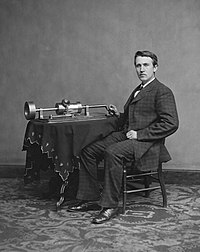
Photo from wikipedia
Abstract Some scholars hold that dynamic capability (hereinafter DC) is one of the keys to achieving competitive advantage (hereinafter CA) and consequently, performance in strategic management. However, the definition and… Click to show full abstract
Abstract Some scholars hold that dynamic capability (hereinafter DC) is one of the keys to achieving competitive advantage (hereinafter CA) and consequently, performance in strategic management. However, the definition and effects of DCs and the role of environmental dynamism are still under discussion. In the context of a Portuguese-like economy and from a strategic process perspective, this study defines dynamic capability as the potential to systematically solve problems, enabled by its propensity to sense opportunities and threats, to make timely decisions, and to implement strategic decisions and changes efficiently, thereby ensuring the right direction. Moreover, the ambidexterity view, exploring the indirect impact of exploitative and explorative capabilities, mediated by creativity and innovation competences (hereinafter IC) gives evidence of the influence on CA and firm's performance. Using an empirical study of 387 enterprises in Portugal, it was found that DCs, creativity and IC do significantly, positively, affect performance, while entrepreneurial orientation (hereinafter EO) is a moderator.
Journal Title: Technovation
Year Published: 2020
Link to full text (if available)
Share on Social Media: Sign Up to like & get
recommendations!